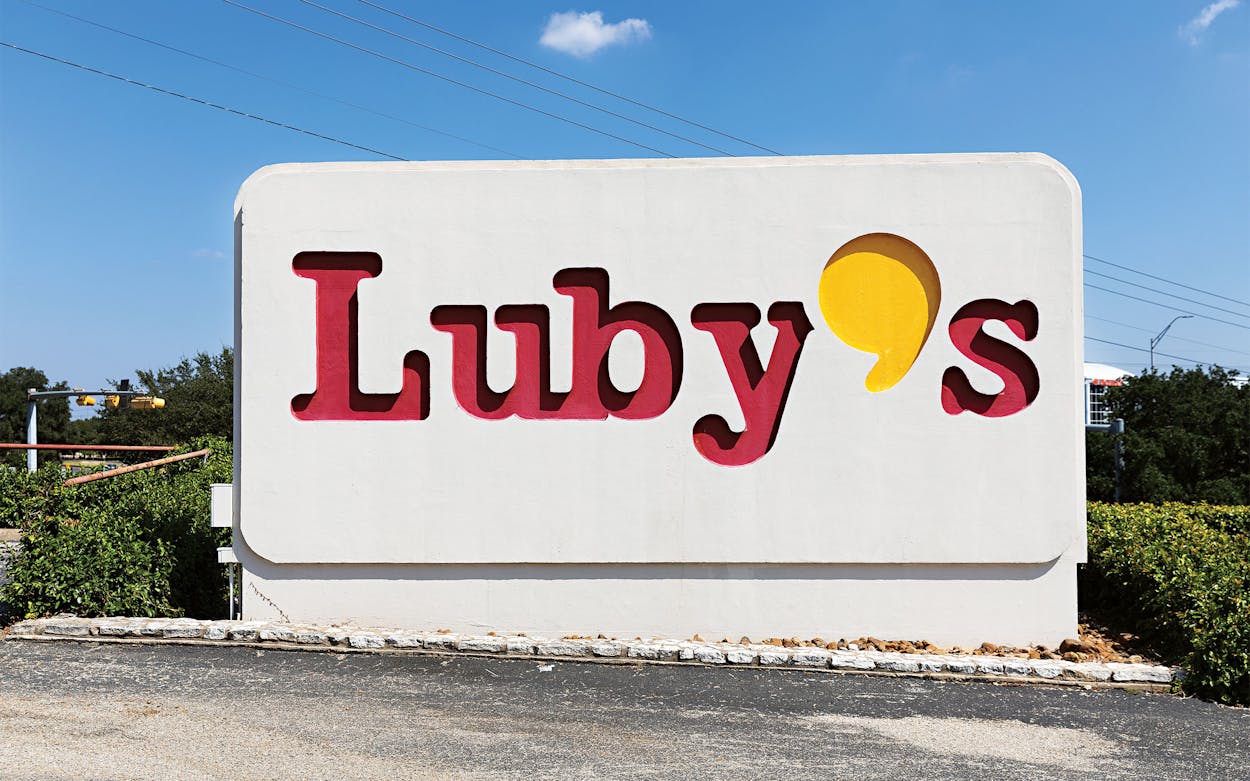The pandemic has been unkind to many businesses across the country, especially in the restaurant industry, where as many as 30 percent of businesses may be at risk of closing permanently. The threat is even greater for those that were struggling long before capacities were slashed and Americans learned that sitting in a dining room with unmasked strangers could be hazardous to their health. Luby’s, the beloved Texas cafeteria that had spent years trying to rebuild its niche in a crowded marketplace for fast-casual dining, announced in June that the company was up for sale. Then, today, the 73-year-old company announced that—as no buyer has yet been found—Luby’s will be liquidating its assets and dissolving.
What this means for the future of your LuAnn Platter isn’t written in stone. It’s still possible that someone could swoop in and buy the Luby’s branding, equipment, and real estate with the intention of continuing to operate cafeterias across Texas. But that’s far from a certainty, and the latest move comes after the company’s attempts to find a buyer have proved fruitless. Instead, Luby’s Inc. will cease to exist, consistent with a statement from its board of directors that “stockholders have expressed their support for seeking alternatives to continuing to operate the Company’s restaurants in their current form.”
In June, Texas Monthly’s Mimi Swartz wrote about the likelihood that Luby’s—a longstanding haven for diners in Texas, a spot where families across the state celebrated birthdays (and occasionally Thanksgivings) with sliced turkey, roast chicken, or chicken-fried steak, with two sides—might not be around much longer, and reflected on her own memories of the place.
[I]f we could just get to Luby’s, all would be well. Some cheerful uniformed waiter would meet us and tie a balloon to Sam’s rolling wooden high chair and help him choose between red and blue Jell-O. (No, I did not care what was in it.) Then, that same server might wheel Sam to the table while I got lost in all the comfort-food choices I never made at home. Mashed potatoes and brown gravy! Broccoli and cheese! Chicken-fried steak!! Maybe we would run into some neighbors in the same boat and have a communal dinner that left the floor around us littered with crumbs and spilled milk. I didn’t have to clean up, and dinner for three cost less than the cheapest entrée at a better restaurant. Who could resist?
Those memories were formed during a brighter era for Luby’s. At its height in 1996, there were Luby’s cafeterias in eleven states, with more than two hundred locations dotting the landscape. Now fewer than sixty Luby’s locations remain, all in Texas. As industry researcher Robert Byrne told the Texas Observer last year, the increasing popularity of fast-casual chains that emphasize freshness and nutrition—places such as Sweetgreen and Chipotle—played a role in Luby’s downfall, as did changing appetites: “There’s been a massive shift with the way that consumers engage with and use restaurants,” Byrne said.
Luby’s Inc. also once operated the Jimmy Buffett–themed burger chain Cheeseburger in Paradise, which closed all but one of its remaining locations in 2018. (That location, in Secaucus, New Jersey, closed as COVID-19 spread in the Garden State; its future is unclear.) Fuddruckers, the San Antonio–founded burger chain that was acquired by Luby’s Inc. in 2010, had fared better prior to the pandemic, with more than 150 restaurants globally, including 41 corporate and franchise-owned locations in Texas. The operating division of Fuddruckers will be sold as part of the company’s liquidation.
The eventual buyer will choose what to do with the assets it acquires from Luby’s, but after failing to find a buyer before taking this step, the company’s primary focus appears to be on recovering shareholder value. In its press release announcing the move, Luby’s Inc. explained that, after its sale, it expected to make cash distributions to stockholders worth between $3 and $4 a share. Trading subsequently spiked, sending Luby’s from a dollar stock to more than $2 per share—which is still below the company’s projections, suggesting that investors aren’t exactly confident in what will eventually become of the business’s assets.
In any case, the end of Luby’s Inc. marks the end of an era for Texans. We’ll remain hopeful that the assets go to someone whose fondness for Luby’s is similar to our own, and that there could be more LuAnn Platters in our future. But as the pandemic continues wreaking havoc on the economy, restaurants such as Luby’s—those that were in distress even before the curveball of the coronavirus threw us all into uncharted territory—are more likely to be casualties than not. If this is the end, we’ll remember it fondly as a relic of an era that time and circumstance passed by, with an entree, two sides, and a roll forever in our hearts.
- More About:
- Business








